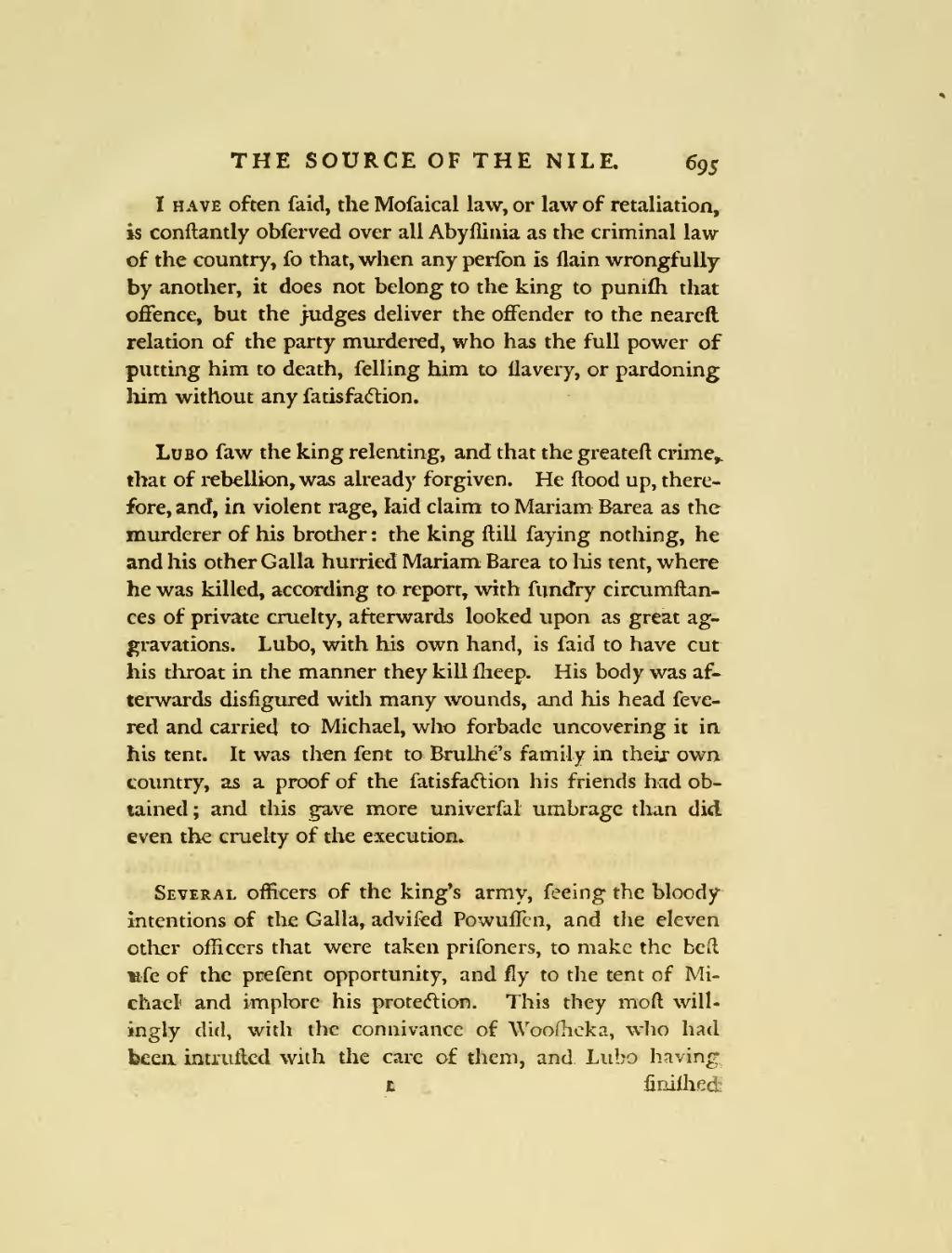I have often said, the Mosaical law, or law of retaliation, is constantly observed over all Abyssinia as the criminal law of the country, so that, when any person is slain wrongfully by another, it does not belong to the king to punish that offence, but the judges deliver the offender to the nearest relation of the party murdered, who has the full power of putting him to death, selling him to slavery, or pardoning him without any satisfaction.
Lubo saw the king relenting, and that the greatest crime, that of rebellion, was already forgiven. He stood up, therefore, and, in violent rage, laid claim to Mariam Barea as the murderer of his brother: the king still saying nothing, he and his other Galla hurried Mariam Barea to his tent, where he was killed, according to report, with sundry circumstances of private cruelty, afterwards looked upon as great aggravations. Lubo, with his own hand, is said to have cut his throat in the manner they kill sheep. His body was afterwards disfigured with many wounds, and his head severed and carried to Michael, who forbade uncovering it in his tent. It was then sent to Brulhé's family in their own country, as a proof of the satisfaction his friends had obtained; and this gave more universal umbrage than did even the cruelty of the execution.
Several officers of the king's army, seeing the bloody intentions of the Galla, advised Powussen, and the eleven other officers that were taken prisoners, to make the best use of the present opportunity, and fly to the tent of Michael and implore his protection. This they most willingly did, with the connivance of Woosheka, who had been intrusted with the care of them, and Lubo having
